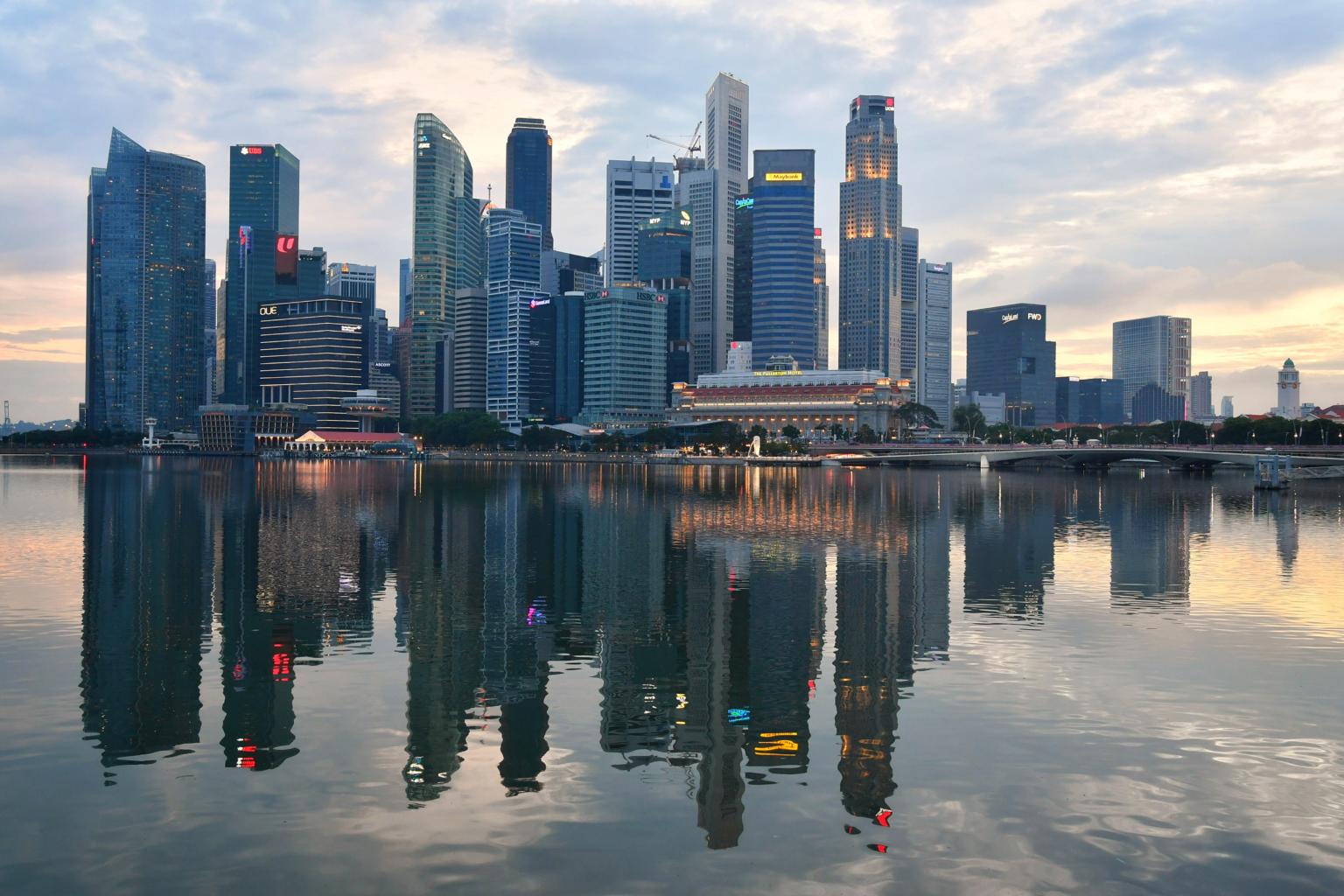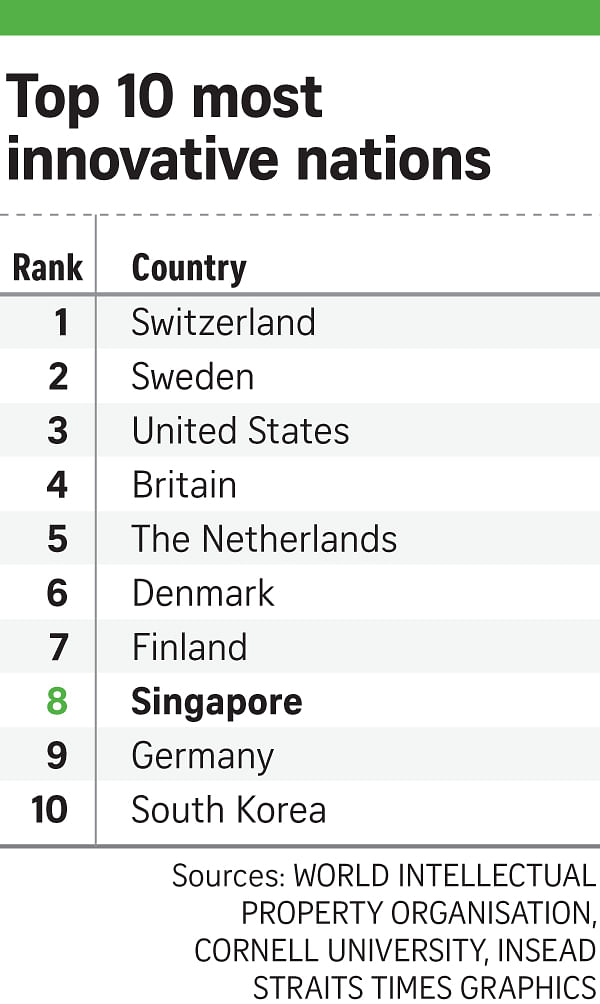Singapore remains Asia-Pacific's most innovative nation
Sign up now: Get ST's newsletters delivered to your inbox

Singapore is ranked No. 1 in the traditionally strong input indicators such as political and operational stability.
PHOTO: ST FILE
For the seventh consecutive year, Singapore has retained the top spot as Asia-Pacific's most innovative nation in the latest Global Innovation Index.
The annual index - released by the World Intellectual Property Organisation, Cornell University and Insead - ranks 131 economies according to their capacity for, and success in, innovation.
The ranking is based on 80 indicators, such as mobile application creation and ease of starting a business.
Indicators fall into "input" or "output" categories. Input refers to the elements of a national economy that enable innovative activities, and output refers to the results of the innovative activities of economies.
Singapore fared well in traditionally strong input indicators such as political and operational stability, government effectiveness and tertiary education - ranking No. 1 globally for all of them.
Singapore also improved in intellectual property (IP)-related output indicators that measure ease of patent filing and protection.
Intellectual Property Office of Singapore (Ipos) chief executive Rena Lee said yesterday: "Ipos' digital efforts, which are part of the national digital transformation road map, have been accelerated by Covid-19 and continue to bolster our position as an innovation hub."
Besides being fully digital for all of its IP application services since 2014, Ipos has enhanced its mobile app for trademark applications and conducted fully virtual IP dispute hearings, among other things, she added.
"Ipos is continuously innovating to give enterprises a business edge during the pandemic where time is of the essence," she said.
In the overall global ranking of the innovation index, Singapore is in eighth place, with the top three positions going to Switzerland, Sweden and the United States.
But the Republic performed relatively poorly in output indicators such as national feature films (No. 61) and infocommunications technology services exports (No. 50).

Dr Bruno Lanvin, executive director for global indices at Insead and co-editor of the index, told The Straits Times: "A country that has a better performance on input than on output is basically a country that does not receive the reward that its efforts would deserve."
Despite the imbalanced performance, which has persisted over a few years, the city-state has maintained "great stability".
Singapore also did poorly in the indicator for expenditure on education as a proportion of gross domestic product. Dr Lanvin said that while this is an important indicator for many countries as it tracks the "political will of governments to make education a priority", it may not apply to the Republic.
He said: "In the case of Singapore, as in the case of Switzerland, it is a bit misleading, since a well-run education system may not require a higher level of public expenditure."


